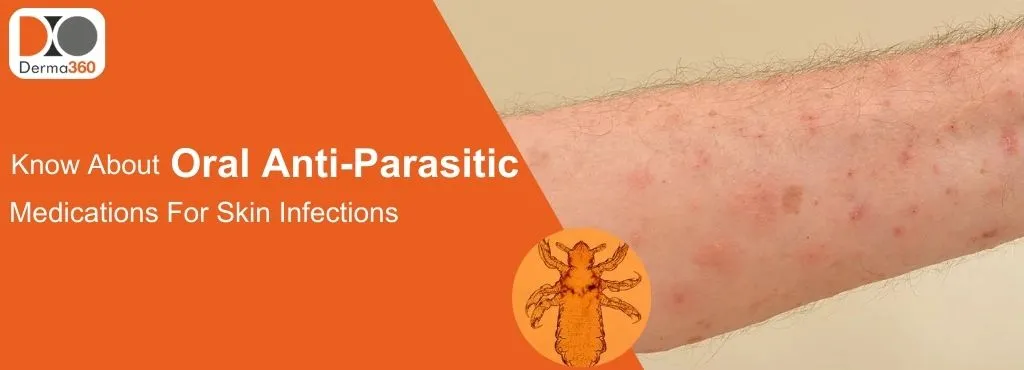Skin infections caused by parasites can be uncomfortable and challenging to manage. While topical treatments are common, oral anti-parasitic medications can be a valuable addition to the treatment plan. Let’s find out more about this topic.
Identification of Skin Infections
Skin infections can result from various parasites, including mites, lice, and worms. Common symptoms include itching, redness, rashes, and in some cases, visible burrows, or tracks on the skin. Proper identification of the parasite causing the infection is needed for effective treatment.
When Topical Treatments May Not Work
Topical treatments such as creams and ointments are often the first line of defense against skin infections. However, in some cases, these treatments may not penetrate deep enough to reach the parasites or may be ineffective against certain types of parasites. Oral anti-parasitic medications are considered when the infection is widespread, persistent, or resistant to topical treatments.
Types of Oral Anti-Parasitic Medications
There are various oral medications specifically designed to target different parasites. For example, anthelminthic drugs are effective against parasitic worms, while others may be prescribed for mites or lice. The choice of medication depends on the type of parasite causing the infection.
Prescription and Consultation
Obtaining oral anti-parasitic medications requires a prescription from a healthcare professional. It is crucial to consult with a doctor before starting any oral medication to ensure an accurate diagnosis and appropriate treatment. The healthcare provider will consider factors such as the patient’s medical history, allergies, and potential interactions with other medications.
Benefits of Oral Anti-Parasitic Medications
Oral anti-parasitic medications offer important benefits in treating skin infections caused by parasites. These medications, which you take by mouth, can be quite helpful in managing various parasitic conditions. Here are some key advantages in simpler terms:
- Systemic Action: One significant benefit is that these medications work throughout your whole body. When you swallow the medication, it gets into your bloodstream and travels everywhere, reaching parasites not only on your skin but also inside your body. This makes them effective against parasites that may be hiding in different areas.
- Convenience: Taking oral medications is often more convenient than using creams or ointments. You don’t have to worry about applying something to your skin multiple times a day. Instead, you just need to follow your doctor’s instructions and take the prescribed pills. This can be particularly useful if the infection covers a large area or is in a hard-to-reach place.
- Effectiveness: Oral medications can be powerful against certain parasites that topical treatments might struggle to reach. They are absorbed into your body and can target parasites from the inside, making them especially effective when dealing with stubborn or widespread infections. This ensures that the medication reaches parasites even in deeper layers of the skin.
- Comprehensive Treatment: These medications provide a comprehensive approach to treatment. Since they travel throughout your body, they can tackle parasites wherever they are. This is important because some parasites might not be limited to the surface of your skin. Oral medications ensure a more thorough and complete treatment, reducing the chances of the infection coming back.
Adherence to Treatment Plan
Following the prescribed treatment plan is crucial for the success of oral anti-parasitic medications. Patients must take the medication as directed, complete the full course even if symptoms improve, and attend follow-up appointments to ensure the infection is fully eradicated.
Oral anti-parasitic medications play a valuable role in treating skin infections caused by parasites. When prescribed and used correctly under the guidance of a healthcare professional, these medications can provide effective relief, especially in cases where topical treatments may fall short. If you suspect a skin infection, consult with your dermatologist to determine the most appropriate course of action.



